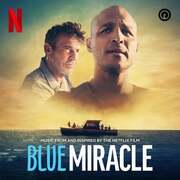New York, NY (Top40 Charts) This year's Eurovision extravaganza kicked off on Tuesday with 16 countries battling it out to secure a coveted place in the final.
The second semi-final will take place on Thursday.
A total of 26 countries will take part in the finale on Saturday evening, which this year takes place in Rotterdam, the Netherlands, following the country's victory in the 2019 edition. Last year's event was postponed due to the coronavirus pandemic.
The global health crisis is still having an impact this year with only 3,500 people allowed to be in the audience. All have been tested.
The audience may be lacking in number but the melodrama is still present.
"The biggest controversy so far has been the fact that the Belarusian entry was disqualified because it mocked the anti-government protesters in Belarus," Dr Dean Vuletic, a historian at the University of Vienna and the author of Postwar
Europe and the Eurovision Song Contest, told Euronews.
"Russia is also controversial because it is opposed by some conservative quarters in Russian politics and society who think that the song mocks Russian women but in fact it glorifies them. It's a feminist song that pays homage to Russian women throughout history," he added.
The event is now in its 65th year and a total of 39 countries are taking part in this year's contest - all European with the exception of
Israel and Australia.
Eurovision is the world's biggest live music event with an estimated 182 million people watching the 2019 final live.
The reason for its success, according to Dr Vuletic, is that it is "one of the cultural events that most unite Europeans and I think it's because it's always reflected the times".
"It's always been a barometer for social, political and above all, of course, cultural change and this is why Europeans love it. It has also produced some great hits like Volare, Waterloo, some great stars like Céline Dion.
"This year we see the influence of different social movements:
Black Lives Matter, MeToo, we also see a lot of songs that refer to mental health issues such as anxiety, depression. In the context of the pandemic, these are also very meaningful," he explained.
This year's favourites are Italy, France, and Malta, according to EurovisionWorld.com. Malta has never won the contest while Italy and France last won in 1990 and 1977 respectively.
Dr Vuletic dismissed for the most part the geopolitical aspect of the contest.
"This is an interpretation that is very often in the British media. In fact, it's not exactly true. Scientific studies have been done on this and while there are some close connections between certain countries, these blocks are never enough to determine the winner and it's been like that throughout history so I think the best song, in the end, does win," he said.
Semi-Final 1 Qualifiers:
(The ten acts that qualified to the grand final of Eurovision 2021 are, in announcement order)
Norway: Tix - "
Fallen Angel"
Israel: Eden Alene - "
Set Me Free"
Russia: Manizha - "Russian Woman"
Azerbaijan:
Efendi - "
Mata Hari"
Malta: Destiny - "Je me casse"
Lithuania: The Roop - "
Discoteque"
Cyprus:
Elena Tsagrinou - "El diablo"
Sweden:
Tusse - "
Voices"
Belgium:
Hooverphonic - "
The Wrong Place"
Ukraine: Go_A - "SHUM"
These acts will be joined in the grand final by the other ten countries that qualify through semi-final two on
Thursday along with the six automatic qualifiers (the Big Five and host country the Netherlands).























